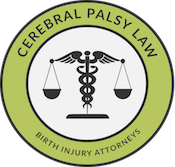Video Transcript
My name is Andrea Shea and I’m a registered nurse. I’m the on-site nurse here at Michigan Cerebral Palsy Attorneys. I currently review medical records. When I receive the medical records, it takes me weeks, sometimes months, to go through, review, and look for potential mistakes that may have occurred in the labor and/or delivery period.
In many cases, the signs and symptoms of cerebral palsy are not easily recognized. For many families the first sign would be a developmental delay. Pediatricians are trained to assess for key developmental milestones through infancy and early childhood. If a child, if an infant, does not meet a milestone, it does warrant further investigation.
Potential signs during the newborn and early infancy period are critical. If a baby fails to breath immediately after birth, that can be a sign that a baby may be at risk for cerebral palsy. If a baby experiences seizures in the first 4 weeks of life, during that newborn period, that is a potential sign for cerebral palsy. When babies are born, if they exhibit a lack of muscle tone, they’re often referred to in a term called floppy. A baby with poor muscle tone or muscle weakness is demonstrating potential sign for cerebral palsy. If a baby’s having problems sucking within that first month, that is a developmental delay. Babies are born with a sucking reflex and they should be proficient at sucking from the hour that they’re born. So difficulty swallowing, difficulty sucking in that first month, is a developmental delay. If a baby fails to blink at loud noises by the age of one month, that is also considered development delay. Babies should be track people and objects, so faces, toys, by the age of two months. If a baby is not tracking objects by two months, that is considered a developmental delay and potentially a deficit in vision. Infants should be rolling over by the age of six months. If a baby is not rolling over from tummy to back, or from back to tummy, by the age of six months that is considered a developmental delay and it could be a sign of cerebral palsy as well. Babies should be able to sit without support, or sit independently on the floor, by the age of nine months.
If a baby exhibits a developmental delay it warrants further investigations. Pediatricians should at that point be referring babies to specialists. If your baby is experiencing developmental delays a specialist, such as a pediatric neurologist, an occupational therapist, or a physical therapist, can help evaluate to see if your baby’s developmental delays are associated with a neurological injury.
For more information on potential signs and symptoms of cerebral palsy, please refer back to our website. We do have thorough list with definitions and explanations that can be very helpful.
